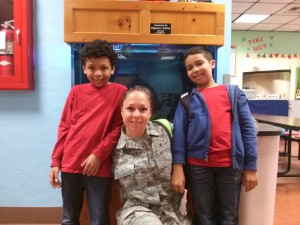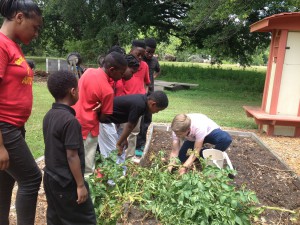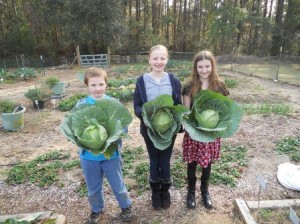by Melanie Taylor | Dec 14, 2018

Aim to find JOY in this holiday season.
As the holiday season quickly approaches, many people are filled with extra holiday cheer and enthusiasm. Some are jolly but still overwhelmed with all of the activities, decorating, and shopping that needs to be completed. Then, there are those that find the holiday season as a reminder of things such as the death of a loved one, family feuds, divorce…the list goes on. If you are feeling this way, here are a few tips to make getting through the season a little bit easier.
- Feel your emotions – Many people want to suppress their sadness or anxiety, but this only makes it worse. We are all allowed to grieve, cry and feel mad at times. If you feel this way, let yourself feel your feelings. You will feel better once you have accepted and worked through the emotions. You also do not have to force yourself to feel happy just because it is the holiday season.
- Reach out to others – Instead of secluding yourself, spend time with others whether it’s at church, a community group or with family and friends. Spending time with others and socializing is good for the spirit.
- Volunteer – There are tons of volunteer opportunities during the holidays. Try something new and volunteer your time to a worthy cause. You’ll feel great about helping others and contributing to a cause.A national survey commissioned by UnitedHealth Group talked to 3,351 adults and found the majority of participants reported feeling mentally and physically healthier after a volunteer experience.
The research showed:
* 96% reported volunteering enriched their sense of purpose in life
* 94% of people said volunteering improved their mood
* 80% of them feel like they have control over their health
* 78% of them said volunteering lowered their stress levels
* 76% of people said volunteering has made them feel healthier
* About a quarter reported their volunteer work helped them manage a chronic illness by keeping them
active and taking their minds off of their own problems
* Volunteering improved their mood and self-esteem
- Be realistic – Realize that times and traditions change as families grow and age. Do not focus on things having to be the same every year. Be willing to accept changes, such as adult children may not be able to attend the family gathering, so utilize technology and talk through video conferencing, share pictures on email and/or Facebook. Find a way to make it work.
- Set aside differences for everyone’s sake. Aim to accept family and friends the way they are, even if they do not meet your expectations. Leave grievances at the door for the day and enjoy your family and friends. Share those grievances and talk at a more appropriate and private time. Also, remember they could be feeling the stress of the holiday too. So, be patient if someone is grouchy or sad as you celebrate. You may both be feeling the same way.
- Learn to say no – Be realistic in the number of activities you and your family can participate. Do not feel guilty because you cannot attend every party and event you are invited too. Graciously decline an invite and share that your schedule is booked, but thank them for thinking of you. A host does not expect that everyone will attend their parties.
- Take a breather as needed – If you start to feel overwhelmed with anxiety, anger or sadness take a few minutes to be alone. Take 15 minutes to spend in the quiet to reduce the stress and clear your mind. For example: listen to soothing music, do a few mindful breathing exercises to slow yourself down or read a book to temporarily escape the stress.
- Seek professional help as needed – there are times when the emotions are just too overwhelming to sort through on our own. If you continue to feel sad, anxious, angry, etc. there is absolutely no shame in seeking the help of a doctor or mental health professional. It will only help you work through your feelings with a non-bias person. Helping yourself feel better will improve your quality of life and those around you.
Learn to take care of yourself first. Learn your limitations and accept them. Don’t t let other’s expectations overwhelm you. Just remember when you start feeling extreme levels of emotions and/or stress, take a few deep breathes and remind yourself to relax and feel the moment. Be mindful of your surroundings and remind yourself of your many blessings even when going through difficult times. Make it your personal goal to feel your feelings and enjoy what you can about the holiday season whether it is the twinkling lights, time with friends and family, the food or any of the many special holiday traditions.
Striving for and maintaining a healthy lifestyle is an achievable goal and a National 4-H Council mission mandate for all of our 4-H members, families and volunteers. To learn more about healthy lifestyles and 4-H, find your local UF/IFAS Extension office.
Sources:
by pmdavis | Apr 1, 2016

Show military youth that you care- wear purple on April 8th!
April is the Month of The Military Child! When we think of honoring our military, we often think of Memorial Day and Veterans Day. Did you know there is also a time identified to honor our youngest heroes, military children? Since 1986, April has been designated Month of the Military Child. This allows us to honor military children and their families for their commitment and sacrifice. In Florida we have over 51,000 military youth who deal with situations like having their parents in harm’s way when they deploy. Most people think of the color green when they think of 4-H, but on April 8th, 4-H youth and volunteers in Florida will be sporting the color purple to show support for our military families.
Imagine if someone close to you were deployed. Would you like to see all the news reports showing bombs exploding and people shooting at each other? How would you feel about having long and repeated separations when your parent misses important events like birthdays, holidays, school and sporting events? Would you like it if your family had frequent relocations/moves? Every time families move, children have to make new friends, get used to new schools, and find new 4-H clubs and teams to join.
A lot of military children take these changes in stride and some even thrive on them, but it is also hard – kids have to rebuild their world every time they move. UF/IFAS Extension and 4-H are proud to be a part of the military family working with youth centers across the nation to have some consistency for youth in these situations and who are making these moves.
Here locally we want you to join us in showing your support and to celebrate our young heroes! Participate in the 6th annual Purple Up! For Military Kids. Wear purple on Friday, April 8th, as a visible way to show support and thank military children for their strength and sacrifices. Why purple? Purple is the color that symbolizes all branches of the military, as it is the combination of Army green, Coast Guard blue, Air Force blue, Marine red and Navy blue.
The goal is for our military youth to see the support of their community. Please join us in honoring these young heroes as we Purple Up! For Military Kids on April 8th! Be creative….the goal is for military youth to see the support in their school, youth groups, and the community! If you don’t have or own a purple shirt wear a purple ribbon, tie, headband etc. Just show your support and let our youth know we care about them! Can’t make the 8th then do something another day in April. We would like to encourage you to take pictures of your group wearing purple and share them on social media. If you are willing to share then e-mail them to us.:bay@ifas.ufl.edu or post photos to Facebook and tag us https://www.facebook.com/bayifas/ or comment and add your photo.
by Melanie Taylor | Aug 15, 2015
 As summer break comes to a close, many children will be experiencing changes in their school experience at an entirely new school. Be sure to make the transition as easy as possible by talking with your child about the positive experiences they may have this new school year. Below are a few tips on how to help you and your child adjust to such a big change with the least amount of stress.
As summer break comes to a close, many children will be experiencing changes in their school experience at an entirely new school. Be sure to make the transition as easy as possible by talking with your child about the positive experiences they may have this new school year. Below are a few tips on how to help you and your child adjust to such a big change with the least amount of stress.
Introduce yourselves to the new school:
• Make sure that the new school expects you: register your child before the first day of class
• If possible, visit your child’s new school: try to meet the office staff, principal, and teachers before the transition to establish a personal connection and to help them prepare for your child’s arrival
• Some schools have “welcome packets” to give to new families; if not, try to get basic information, such as what time the school day begins and ends, the procedure for lunch (can your child buy lunch, does the school provide snacks, etc.), transportation procedures (what’s the bus schedule), and information about health services and emergency procedures
• Try to meet other school families; if you have an elementary school-aged child, see if you can arrange a “play date” with another child in the same grade (preferably before the first day of school.)
• Become involved in your child’s new school. Consider joining the PTA, or volunteering at the school; the more involved you are, the more your child will feel like his or her school is important to you and the more connected he or she will feel.
Help your child adjust:
• Make sure your child understands the reasons for changing schools; if you have an older child, try to give him or her as much “advance notice” as possible so that he or she will have time to adjust to the idea
• If time allows, show your child his or her new school and the surrounding neighborhood; see if you can arrange for a student to show your child around the school and introduce him or her to teachers and staff; some schools have a “buddy system” or other ways of helping your child meet other children in the school
• Make sure the school has what it needs to make the best decisions concerning your child’s classroom placement and academic and social needs; confirm that the new school has obtained your child’s educational, health, and other relevant records
• Be patient. It is perfectly normal for a child to feel anxious, scared, or irritable during times of transition. Let your child know that you understand that this is difficult; take the time to listen to his or her concerns, and spend time together while your child develops new school connections and friendships
• Stick to your routine. If rapid changes have left your child upset, knowing what’s expected at home can provide a comforting calmness. Encourage your child to feel good during this stressful time: encourage (or enforce) a schedule including a regular bedtime and a healthy breakfast.
• If your child had a negative experience at his or her last school, speak positively about the fresh opportunity that the new school presents. Help your child develop new goals for school success
• If your child is young, or is particularly nervous, consider accompanying him or her to school for the first few days
• Encourage your child to become involved in school activities, sports, or after school clubs
• Make sure your child has what he or she needs for the first day of school (ask the school for a classroom supply list.) This will make your child feel more included on the first day.
• Help your child identify something good about his or her new school, and offer comfort and reassurance that adjusting to a new school takes time.
One of the most important steps as a parent is to realize that moving to a new school is a very big deal for many children. There may be a few bumps in the road along the way, but remember to be patient, understanding and there for your child and he or she will eventually adjust. This adjustment could take up to 6 weeks. If the adjustment continues to be struggle after several months be sure to consult with a school counselor to help with any further assistance.
Do you have a skill or passion that you would like to teach the next generation? Consider becoming a 4-H volunteer. 4-H offers a wide variety of opportunities for volunteers to make a difference in their community, or even at their school. Next week, our blog post will focus on ways that you can volunteer through 4-H school programs. To find out more about volunteer opportunities, contact your local UF IFAS Extension Office, or visit http://florida4h.org/volunteers.
by Jenny Savely | Jun 5, 2015

Youth learn how to grow and prepare vegetables during a gardening day camp in Escambia County.
Each summer, 4-H programs across the Florida panhandle offer a wide array of residential and day camps for youth ages 5-18. Summer residential and day camps are a great way for youth to be introduced to all that 4-H has to offer. Many camps explore specific 4-H projects, or topics, such as culinary arts, sewing, livestock or robotics, while others offer a smorgasbord of 4-H activities.
These camps differ from typical summer programs in that they are framed around the essential elements of positive youth development. 4-H is focused on developing life skills through educational programs that promote competence, confidence, connection, character, and compassion. The connection of 4-H to land grant universities like the University of Florida also means that camp curriculum is based on the best knowledge available about any given project, and taught by caring adults using learn-by-doing methods.
This summer youth are in no shortage of camps to satisfy their desire to learn while having fun. Below you can find a list of day camps that will be offered throughout the panhandle. Hurry and register your youth for the time of their life, spaces often fill quickly. Most counties also offer week long overnight camps at Camp Timpoochee or Camp Cherry Lake.
Contact the 4-H agent near you for more information and to register for any of these camps. Click on the county links below for more information. Register now and let the fun begin!
Calhoun County
July 6, 13, 20, 27 – Kids in the Kitchen, $10; Piping & Fondant Cake Decorating for Kids, $35 (or $35 for both camps)
Escambia County
June 2 – Garden to Plate Day Camp – $5, 8am-2pm (age 9-16) – Get in the kitchen with Chef David Bearl as he leads us in an interactive learning experience about cooking and activities that promote healthy lifestyles and Florida agriculture as they discuss gardening techniques and food safety.
June 17-19 – Dairy Day Camp – $5, 8am-2pm each day – Join us for three days of exploring the world of dairy. From care and biology to how to use the products of dairy cows, this camp will introduce you to the dairy industry while you make new friends and enjoy dairy related activities.
June 29 – Water Conservation Day Camp- $5, 8am-2pm – join Master Gardeners and Extension faculty in an exploration of the importance of water to our planet, how nature works to conserve it, and how we can do our part (prepare to get wet!).
July 15 – Community Awareness and Service Day Camp – $5, 8am-2pm –We will take trash items like plastic bags and jugs that you collect and reuse them to make useful items for people in need. This camp will focus on overuse and its environmental and social consequences.
July 21 – Search and Rescue Day Camp – $5, 8am – 2pm – Klaas Kids will join us for a day camp of fun and safety training. Youth will learn the process of search and rescue including how K9 units track and find lost children, and strategies youth can use for preventing crimes against them as well as what to do if they are lost in various settings.
Gadsden County
June 8 – 12 Clothing Adventures – $70, 8-5 – Youth will discover the science & technology behind fabrics, fabric care, fabric construction, and create projects.
June 15-19 Quirky Culinary Capers – $70, 8-5 – Youth will explore the magic of food science, prepare nutritious snacks, and learn how to improve their health for optimum living.
July 20-24 – It’s Alive: Junk Drawer Robotics – $70, 8-5 – Youth will engage in robotic design, use, construction, and control as they work in teams to make it come alive with everyday items. Wednesday, July 22 is challenged day in Tallahassee.
Jackson County
July 7 – Painting with a 4-H Twist Day Camp – $35, 5:00-9:00 – a local artist will walk youth step by step to the completion of a masterpiece to take home
July 20-22 – Junk Drawer Robotics – $80, 9:00 – 5:00 – learn how to make robots out of everyday household products. On the last day of camp there will be a Robotics contest with surrounding counties and will be held at the North Florida Fairground.
July 28-29 – SEW Much Fun- $45, 8:00-12:30 – designed for novice sewers with no previous experience. All materials are provided by the 4-H Department
August 6 – Cloverbud Explorations: The World of Rabbits and Poultry – $20, 8:30-11 (age 5-7) – learn how to select, properly care for, identify and enjoy a poultry or rabbit project
Jefferson County
June 22-26– Outdoor Recreation Day Camp – $35, 8:30-4:30 (age 10-15) – camp includes activities in: Forestry, Conservation, Wildlife, Archery, Air Rifles, and Sporting Clays
June 29 – July 2- Go Green in 2015 – $35, Mon. – Wed. 8-12, Thurs. 8-3 (age 5-7) – Story Time, Crafts, Fishing, Organized Recreation, Cooking, Swimming
July 8 – 12 – Go Green in 2015 – $35, Mon.-Thurs 8-4, Friday 8-12 (age 8-9) – Garden Project, Organized Recreation, Cooking, Swimming, Fishing
Leon County
June 22-26 – 4-H Wildlife camp – $80, 8-5 (age 10-18) – This outdoor nature camp will provide its participants with a basic understanding of environmental stewardship, wildlife, safety, and fun in an outdoor setting. Fun educational sessions covering National STEM (science, technology, engineering and math) initiatives will be taught by qualified instructors in aquatics, forestry, conservation, shooting sports, and orienteering.
June 30-July 2 – 4-H Outdoor cooking Camp – $80, 9-4 (age 9-13) – Youth will learn the safety and art of cooking over fire, and will go on a farm field trip.
July 13-17 – 4-H Previous Attendees Sewing Camp – $35, 8:30-12 (age 8-18) – This sewing camp is for previous 4-H sewing camp attendees or those with sewing experience. Refer to flier for required materials needed for camp.
Liberty County
June 8-11- 21st Century at W.R. Tolar School
June 15-17 – Exploring 4-H – $20, 9-4 (age 8-12) Sewing, Archery, Animals, Cooking, Bugs
June 29, July 1-3 – 21st Century at Hosford School
July 7- Rabbit Day Camp – $5, 9-4 (age 5-18)
July 20-22- Robotics Day Camp – $20, 9-4 (age 8-13)
Santa Rosa County
June 15-19 – 4-H Cooking Camp (age 8-12)- $100, 7:30-2 – Youth will learn to cook a variety of dishes and bring home a few yummy dishes! Baking, measuring, safety tips, food planning, grocery shopping, reading labels, frying, nutritional education, grilling, canning, bread-making and more will be on the agenda.
June 22-26 – Discovering 4-H Day Camp – $100, 7:30-4 – These days will expose youth all the projects Santa Rosa County 4-H has to offer. Monday: Trip to Bear Lake for wildlife and natural resources hike. Tuesday: Farm tour. Wednesday: Navarre Marine Ecology and Butterfly house. Thursday: Archery and garden tour. Friday: Nutrition, peanuts, beekeeping.
Wakulla County
June 15-17 – 4-H Sewing and Crafts Camp – $35, 8:30-4:30 – “learning sewing and artistic crafts, one stich at a time.” The camp will focus on basic sewing and crafting skills.
June 24-26 – 4-H Cooking Day Camp – $35, 8:30-4:30 – “a chef in the garden, a scientist in the kitchen.” The campers will learn how to cook simple, healthy, meals, while exploring where food comes from, and how, scientifically, it can be transformed into delicious meals through cooking.
Walton County
June 11 – Silly Science Cloverbuds (age 5-7) – $15, 8:30-12:30 – will feature fun science experiments
June 15-18 – 4-H Growing Roots – $30, 8:30-4:00 – feature a little bit of everything, like health & fitness, finances, Agriculture, beekeeping
July 13-16 – Seaside Robotics – $40, 8:30-4:00 – features not only assembly but programming
July 20-23 – X-Treme Cuisine – $30, 8:30-4:00 – will teach healthy snack and meal preparation, cooking, and basic kitchen safety
by Stefanie Prevatt | Apr 12, 2013
April kicks off the global month of service. If you are responsible for guiding and organizing service learning projects for your 4-H Club (or any other organization), follow this five step process to ensure a successful, enriching experience for all involved:
1. Assess.
Who (or what) needs help in your local community? Ask for youth input for a specific area, location, or population.
2. Plan.
Define learning objectives for the project. These can be general or specific, but the service project should be guided by an educational goal.
3. Participate.
To engage youth in a true service learning experience, ask reflection questions during the actual service project.
4. Analyze and Generalize.
Immediately following the experience, ask questions to learn how youth felt while they were engaged in the service project, such as: “What was the most difficult task you did today?”
To generalize is to understand the “so what.” Ask questions like: “What did you learn about yourself while completing this project?”
5. Apply.
Ideally, service learning is a continuous process. Whether giving an illustrated talk on increased awareness of animal abuse or volunteering at a local hospital on their own time, service learning hopes to foster “self-worth, citizenship, critical thinking skills, [and ] responsibility” in youth (Mashburn, Harder, & Pracht, 2011).
For more information on how to can make community service more enriching and meaningful for youth and adults:
Mashburn, D., Harder, A., & Pracht, D. (2011). Learning by doing: Utilizing service-learning projects (AEC392). Gainesville: University of Florida Institute of Food and Agricultural Sciences. Retrieved August 23, 2012 from http://edis.ifas.ufl.edu/wc073#FIGURE%201

The Leon County 4-H Horticulture Club grew and donated over 150lbs of fresh vegetables to local food banks in 2012.



 As summer break comes to a close, many children will be experiencing changes in their school experience at an entirely new school. Be sure to make the transition as easy as possible by talking with your child about the positive experiences they may have this new school year. Below are a few tips on how to help you and your child adjust to such a big change with the least amount of stress.
As summer break comes to a close, many children will be experiencing changes in their school experience at an entirely new school. Be sure to make the transition as easy as possible by talking with your child about the positive experiences they may have this new school year. Below are a few tips on how to help you and your child adjust to such a big change with the least amount of stress.
